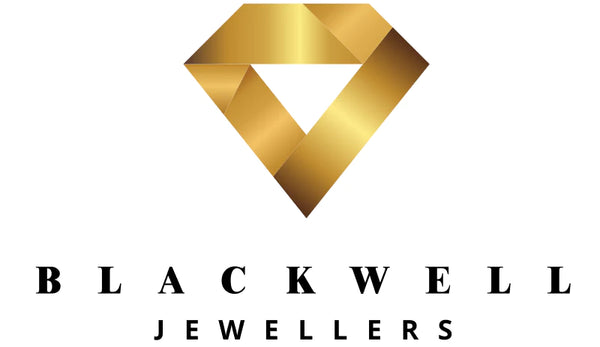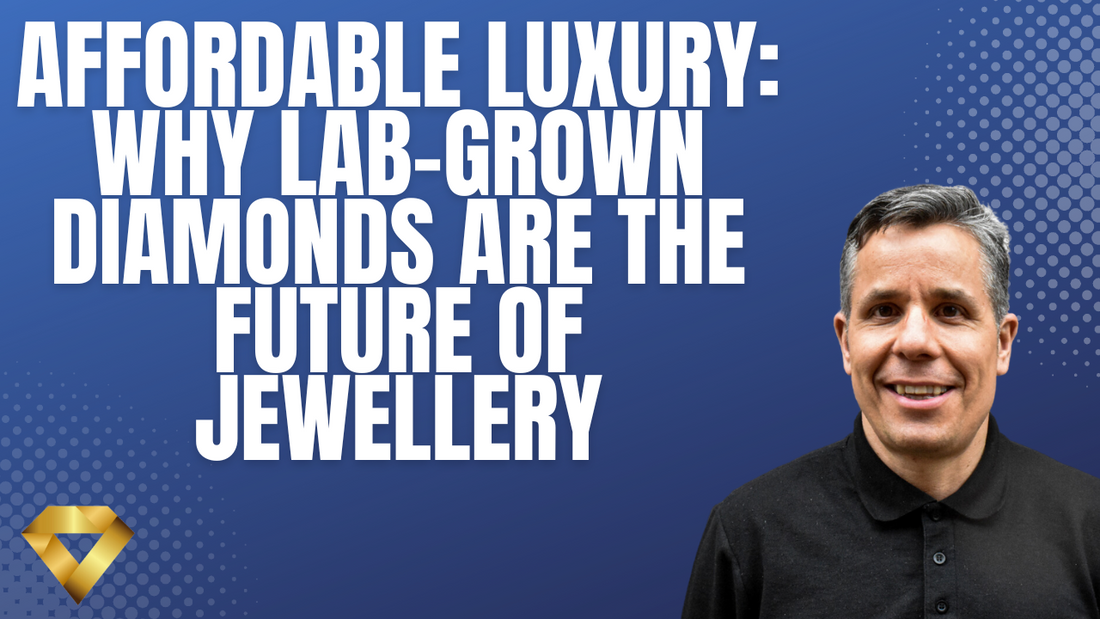
In a world where luxury often comes with a hefty price tag, lab-grown diamonds are reshaping the jewellery landscape. Whether you're eyeing a stunning solitaire ring or elegant diamond earrings, these gems offer the same sparkle as their mined counterparts - but with a revolutionary twist. Let's dive into why these innovative stones are becoming the go-to choice for savvy shoppers, and how they're transforming the way we think about luxury and sustainability in the jewellery industry.
The Diamond Revolution: From Earth-Mined to Lab-Grown
The diamond industry is experiencing a seismic shift. For centuries, the only way to get your hands on a diamond was to dig it out of the earth - a process that's not only resource-intensive but often comes with significant environmental and ethical concerns. But now? Science has given us another option. Lab-grown diamonds aren't just shaking up the market - they're redefining what luxury means in the 21st century.
Did you know? The first lab-grown diamond was created in 1954 by General Electric, but it wasn't until recent years that the technology advanced enough to create gem-quality stones suitable for jewellery. This breakthrough has led to a rapid evolution in the industry, with more jewellers like Blackwell Jewellers embracing these innovative gems.
Current Market Trends
- Lab-grown diamond sales increased by 15-20% annually since 2020
- Millennials and Gen Z are driving the demand, particularly for engagement rings and everyday luxury pieces
- Price points are typically 30-40% lower than mined diamonds
- Growing popularity in fashion jewellery, including trendy necklace designs and statement earrings
The Impact on Traditional Diamond Markets The rise of lab-grown diamonds has sent shockwaves through the traditional diamond industry. Major players are adapting:
- De Beers launched their own lab-grown diamond line
- Many high-end jewellers now offer both options
- Marketing strategies are shifting to focus on origin and sustainability
What Are Lab-Grown Diamonds, Really?
Let's get one thing straight - these aren't "fake" diamonds. They're the real deal, just created in a lab instead of underground. When you buy lab-grown diamond jewellery, you're getting a stone that's chemically, physically, and optically identical to a mined diamond. This means the stunning pendant you've been eyeing has the same fire, brilliance, and durability as any other diamond.
The Science Behind Creation
There are two main methods for creating these gems, each with its own advantages:
- High-Pressure, High-Temperature (HPHT)
- Mimics natural diamond formation
- Uses temperatures over 2000°F
- Creates a pure carbon environment
- Particularly good for producing larger stones
- Often used for solitaire rings due to excellent clarity
- Chemical Vapour Deposition (CVD)
- Uses a diamond "seed"
- Layers carbon atoms to grow the diamond
- Allows for more controlled growth
- Ideal for creating diamonds with specific colour properties
- Popular for creating stones for diamond earrings and pendants
"The technology behind lab-grown diamonds is nothing short of revolutionary. We're creating stones of exceptional quality that are indistinguishable from mined diamonds, opening up new possibilities for both jewellers and consumers." - Dr. James Thompson, Gemmological Institute
The Growth Process Explained
The journey from carbon to diamond is fascinating:
- Preparation: Carbon source is selected and purified
- Initiation: Growth chamber is prepared with precise conditions
- Growth: Diamond crystals form over days or weeks
- Cutting and Polishing: Same process as mined diamonds
Myths vs. Facts Table
|
Myth |
Fact |
|
Lab-grown diamonds are fake |
They have identical properties to mined diamonds |
|
They're only for costume jewellery |
High-end jewellers like Blackwell Jewellers offer them |
|
They don't last as long |
They're equally durable as mined diamonds |
|
They don't sparkle the same |
They have identical optical properties |
|
They're easily distinguishable |
Only specialised equipment can tell the difference |
|
They're not suitable for fine jewellery |
They're used in everything from solitaire rings to luxury necklaces |

The Price Tag Revolution
When you're shopping for diamond pendants or a show-stopping necklace, the price difference between lab-grown and mined diamonds can be substantial. This cost advantage is one of the key factors driving their popularity, especially among younger consumers who are both price-conscious and values-driven.
Why the difference? Lab-grown diamonds skip the expensive mining process, reducing:
- Labour costs
- Environmental impact
- Supply chain complexities
- Marketing and middleman markups
Value Proposition Over Time
While lab-grown diamonds are generally less expensive, it's important to understand their value proposition:
- Initial Cost: Significantly lower than mined diamonds
- Insurance: Often lower premiums due to lower replacement cost
- Resale Value: Currently lower than mined diamonds, but market is evolving
Case Study: The Smart Shopper
Emma, a 28-year-old software engineer, was looking for diamond earrings for her wedding day. After researching, she chose lab-grown diamonds from Blackwell Jewellers:
- Original budget: £2,850
- Actual spend: £1,400
- Upgrade: Got larger stones for less money
- Result: More impressive earrings within budget
- Additional purchase: Used savings to buy a matching pendant
Emma's experience reflects a common scenario: buyers can often get larger, higher-quality stones when choosing lab-grown options.
Why Are Lab-Grown Diamonds Cheaper?
The affordability of lab-grown diamonds compared to natural diamonds is one of their biggest draws. But what makes them so much cheaper?
Lower Production Costs
Producing lab-grown diamonds does not require the same infrastructure as mining natural diamonds. With lab-grown diamonds, the controlled environment ensures consistency, while technological advancements have reduced production costs significantly.
No Mining Costs
Since lab-grown diamonds are grown in labs, they don’t require the expensive process of diamond mining. Natural diamond extraction involves labour, land use, and transportation, all of which add to the final cost of the gemstone. Lab-grown diamonds cut out these middlemen and resource-heavy processes, making them more cost-effective.
Market Competition and Technological Advancements
As the demand for lab-grown diamonds increases, technological advancements have further driven down the cost of production. There’s also increased competition in the lab-grown diamond market, which encourages innovation and cost reductions. Jewellery retailers like Blackwell Jewellers are offering lab-grown diamonds at competitive prices, giving customers more options for affordable luxury.

Affordable Luxury: Redefining the Concept of High-End Jewellery
Lab-grown diamonds represent a new era in the world of luxury jewellery, where elegance meets affordability. Several luxury brands have already started embracing lab-grown diamonds to appeal to a younger, environmentally conscious audience.
How Lab-Grown Diamonds Cater to Modern Consumers
Millennials and Gen Z consumers are increasingly seeking out ethical, sustainable, and affordable alternatives to traditional luxury goods. Lab-grown diamonds check all the boxes:
- Affordability: Lab-grown diamonds make luxury more accessible.
- Sustainability: With reduced environmental impact, they appeal to eco-conscious consumers.
- Customization: Lab-grown diamonds offer greater flexibility for bespoke designs.
Luxury Without the Guilt: Ethical Jewellery Choices
For consumers who want to buy lab-grown diamond jewellery without worrying about the environmental or ethical consequences of diamond mining, lab-grown diamonds provide a guilt-free alternative. Choosing a lab-grown solitaire ring or necklace means you’re opting for a sustainable and ethical choice without compromising on style or quality.
Environmental and Ethical Implications
The environmental impact of your jewellery choice matters more than ever. Lab-grown diamonds offer a more sustainable option that's increasingly appealing to environmentally conscious consumers.
Environmental Impact Comparison
|
Factor |
Mined Diamonds |
Lab-Grown Diamonds |
|
Carbon Footprint (per carat) |
57,000 grams |
4.8 grams |
|
Water Usage (per carat) |
126 gallons |
18 gallons |
|
Land Disruption |
Significant |
Minimal |
|
Energy Usage |
Very High |
Moderate |
Ethical Considerations
When you buy lab-grown diamond jewellery, you're choosing:
- Conflict-free gems
- Transparent supply chains
- Better labour practices
- Support for technological innovation
Impact on Mining Communities It's worth noting the complex relationship between lab-grown diamonds and traditional mining communities:
- Some communities are transitioning to other industries
- Others are adopting lab-grown technology
- Many areas are developing more sustainable mining practices
Quality and Grading
Just like mined diamonds, lab-grown diamonds are graded on the 4 Cs:
- Cut: Affects brilliance and sparkle
- Colour: From colourless to yellow or brown tints
- Clarity: Presence or absence of inclusions
- Carat: Weight and size of the diamond
Certification Process
Leading gemmological institutes now certify lab-grown diamonds:
- GIA (Gemmological Institute of America)
- IGI (International Gemmological Institute)
Quality Indicators to Look For
When shopping for lab-grown diamond jewellery, consider:
- Certification from reputable labs
- Cut quality (affects brilliance)
- Symmetry and polish
- Fluorescence levels
Shopping Guide for Lab-Grown Diamonds
Ready to start shopping? Here's what to look for:
- Certification: Ensure it's from a reputable lab
- Retailer reputation: Choose established jewellers like Blackwell Jewellers
- Comparison shopping: Look at both lab-grown and mined options
- Setting quality: The mounting is just as important as the stone
Best Practices for Buyers
- Ask questions: Good jewellers welcome them
- Check return policies: Especially important for online purchases
- Consider the setting: The right setting enhances any diamond
- Think about lifestyle: Choose pieces that fit your daily activities
Popular Lab-Grown Diamond Jewellery Styles
- Engagement Rings
- Solitaire rings remain the most popular
- Halo settings maximise sparkle
- Three-stone designs for added significance
- Fashion Jewellery
- Tennis bracelets at more accessible prices
- Statement necklaces with larger stones
- Stackable bands for versatile wear
The Versatility of Lab-Grown Diamonds in Design
One of the most exciting aspects of lab-grown diamonds is their versatility. Lab-grown diamonds offer more flexibility in terms of design, which makes them ideal for bespoke jewellery.
Lab-Grown Diamonds for Engagement Rings and Special Occasions
Lab-grown diamonds are becoming increasingly popular for engagement rings, wedding bands, and halo rings. They offer the same level of brilliance and elegance as natural diamonds but at a more affordable price. More couples are opting for lab-grown diamonds to symbolise their love in a way that reflects their values of sustainability and ethical sourcing.
Customization: The Sky’s the Limit
Since lab-grown diamonds are created in controlled environments, they can be customised to meet specific design needs. Whether it's an intricate necklace, a pendant, or a bespoke engagement ring, lab-grown diamonds offer flexibility that is difficult to achieve with natural stones.
The Future of Jewellery: Why Lab-Grown Diamonds Are Shaping Trends
Lab-grown diamonds are not just a passing trend; they’re shaping the future of the jewellery industry. With technological innovations and increased consumer demand, the market for lab-grown diamonds is only expected to grow.
Technological Advancements and Innovation
Lab-grown diamond production has advanced significantly in recent years, allowing for the creation of larger, higher-quality stones. The technology behind both HPHT and CVD methods continues to improve, making the diamonds more affordable and accessible.
Consumer Demand Shifting Towards Sustainability
Consumers today prioritise sustainability more than ever. According to recent studies, 70% of millennials prefer to spend more on brands that are sustainable and ethical. This shift in consumer values has propelled lab-grown diamonds into the spotlight, as they align with modern values.
The Investment Potential of Lab-Grown Diamonds
While natural diamonds are often considered an investment, lab-grown diamonds have a different kind of value. Though their resale value may not match that of natural diamonds, they offer exceptional value upfront. The affordability of lab-grown diamonds allows customers to invest in larger, higher-quality stones at a fraction of the price.
Expert Insights and Consumer Stories
Real customers share their experiences:
"I chose a lab-grown diamond pendant from Blackwell Jewellers. The quality is incredible, and I love knowing it's sustainable." - Lisa, 34
"My lab-grown diamond earrings get just as many compliments as any mined diamond would." - Mary, 42
"The solitaire ring I bought for my fiancée is stunning, and choosing lab-grown meant we could get a larger stone within our budget." - James, 29
Industry Expert Perspectives
Jewellers and industry professionals weigh in:
- Design Freedom: Larger stones at lower costs enable more creative designs
- Consumer Education: More informed buyers are making conscious choices
- Market Growth: Expanding beyond traditional diamond jewellery markets
FAQs About Lab-Grown Diamonds
Q: Are lab-grown diamonds real diamonds?
A: Yes, they have the same chemical, physical, and optical properties as mined diamonds.
Q: Can I insure my lab-grown diamond jewellery?
A: Absolutely! Most insurance companies treat them the same as mined diamonds.
Q: Do lab-grown diamonds look different from mined diamonds?
A: No, they're visually identical. Even experts need special equipment to tell them apart.
Q: Do Lab-Grown Diamonds Last as Long as Natural Diamonds?
Yes, lab-grown diamonds are just as durable as natural diamonds. Both types score a 10 on the Mohs hardness scale, meaning they are equally resistant to scratches and wear.
Q: Will Lab-Grown Diamonds Retain Their Value?
While natural diamonds have traditionally held higher resale value, lab-grown diamonds offer better upfront value. The resale market for lab-grown diamonds is still evolving, but their affordability and ethical appeal make them a worthwhile purchase.
Conclusion: The Sparkling Future of Affordable Luxury
Lab-grown diamonds are more than just a trend - they're the future of jewellery. Whether you're looking for stunning earrings, a timeless necklace, or the perfect solitaire ring, these gems offer the same beauty and quality as mined diamonds, but with added benefits:
- More affordable
- Environmentally conscious
- Ethically sourced
- Technologically innovative
As you consider your next jewellery purchase, remember that luxury doesn't have to come at the expense of your values or your wallet. Visit Blackwell Jewellers to explore their collection of lab-grown diamond jewellery and step into the future of affordable luxury.
Making Your Choice
When deciding on your next diamond purchase, consider:
- Your budget and what you can get for it
- The type of jewellery you're looking for
- Your personal values and what matters most to you
- The legacy you want your purchase to represent
Ready to explore lab-grown diamonds? Visit Blackwell Jewellers today to see their stunning collection of pendants, necklaces, earrings, and solitaire rings. Experience the future of jewellery first-hand and discover how you can own a piece of sustainable luxury that doesn't compromise on quality or beauty.



